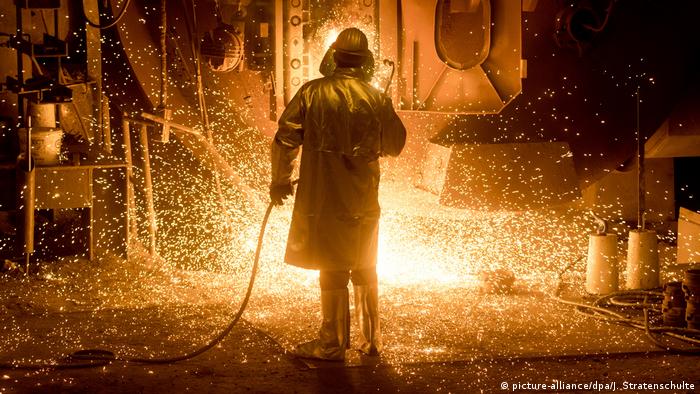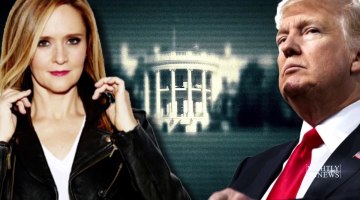
Europe Shocked by American Tariffs
Donald Trump came to the White House in early 2017 with the idée fixe “Make America Great Again.” The economic part of his “business plan” envisioned a significant reduction in the trade deficit and the return of manufacturing and jobs to the United States. Yet, from the very beginning, the “plan” didn’t look altogether convincing. According to a study by the Peterson Institute for International Economics, imposing tariffs may secure no more than 3,500 jobs. At the same time, the entire steel industry in the U.S. today employs about 140,000 people, which is a lot less, for example, than the automotive industry, which consumes steel and aluminum. Consequently, the American auto industry doesn’t win but loses from tariffs being put on steel and aluminum if previously it was consuming cheaper, imported metals. Or, if right after the tariffs on metals, you have to put tariffs on European cars as well. But then that’s a full-blown trade war.
Meanwhile, imposing tariffs can’t dramatically reduce the trade deficit, the reasons lying, to a large extent, in the debt-driven model of American consumption. However, Trump himself most likely understands that slapping tariffs on European steel won’t reduce the U.S. trade deficit. Therefore, it can’t be ruled out that he’s pursuing a different objective, one completely unrelated to economics: Important midterm elections are coming up in November, and in states like Ohio and Pennsylvania, governors and senators will be elected. Both states are pillars of the steel industry, so it makes sense to show the voters of these states that the president is seriously fighting for their interests in the international arena.
Recently, another noneconomic component of Washington’s decision to impose tariffs on metals came to light as well. It so happens the tariffs against the EU might be a bargaining chip. In conversations with German Chancellor Angela Merkel, President Trump said that he’s ready to lift the tariffs on steel and aluminum if Berlin withdraws its support for Nord Stream 2. It turns out Trump’s fight to reduce the trade deficit might be put on the back burner if there are more important issues.
“The EU believes these unilateral U.S. tariffs are unjustified and at odds with World Trade Organization rules. This is protectionism, pure and simple,” stressed the head of the European Commission, Jean-Claude Juncker. Canadian Foreign Minister Chrystia Freeland was even more precise: “These unilateral tariffs, imposed under a false pretext of safeguarding U.S. national security, are inconsistent with the United States’ international trade obligations and WTO rules.” The key point in this sentence that’s capable of, as they say nowadays, “blowing the minds” of the Europeans and Canadians, is embedded in the phrase “under a false pretext of safeguarding U.S. national security.”
Indeed, America’s legal basis for erecting tariffs was a reference to the relevant section of a law on the expansion of trade passed in the U.S. back in 1962, which allows restricting the import of goods if it represents a “threat to national security.” The reference to a legal document more than half a century old is not merely odd, to say the very least, given the scale of the drastic changes which have taken place in international economic regulation. The mention of “threats to national security” is the most serious problem, and it takes the possible review of partners’ complaints at the World Trade Organization in a completely different direction.
The fact is that the commitments made by member countries within the framework of the WTO allow for the resolution of matters regarding potential import restrictions strictly in accordance with established rules. Such restrictions, in particular, are allowed in cases of dumping, the use of illegal subsidies, or threats to national industries due to a sharp increase in imports. In each of these cases, proof of damage from the exporting country’s aforementioned actions is necessary. But the current American measure doesn’t fit into any of these three cases, taking as its basis “national security considerations.” At the WTO, however, the plaintiff in litigation related to national security considerations has practically no prospect of prevailing in litigation related to national security consideration, because in such cases, the state itself determines what protective measures should be taken, thus acting as the final judge in the dispute. There’s a reason the provisions of the relevant article in the WTO legal framework (GATT Article XXI) are called “national security exceptions.”*
It is this that shocks the Europeans and Canadians. It could be imagined, they say, that Washington is imposing restrictions for reasons of national security on China, which — it’s no secret — is seen as a strategic U.S adversary. But restrictions on the very same basis against a strategic partner, which the Old World has been for America for many decades, looks absurd. Just two or three years ago, Washington and Brussels were enthusiastically discussing the prospects of the Trans-Atlantic Trade and Investment Partnership, which proposed reducing all tariffs to zero.
Nevertheless, for the time being, the EU, Canada and perhaps Japan intend to go the legal route, bringing the appropriate claim against the United States to the WTO Dispute Settlement Body. At the same time, Brussels and Ottawa are making lists of American goods on which retaliatory tariffs can be imposed. Needless to say, the best option is the legal one, but success isn’t guaranteed in this case. The other option is a trade war.
The emerging situation poses a very serious threat to the rules-based system of international trade, which Europe is speaking about openly. The author was personally able to confirm this recently during the regularly held “Primakov Readings” by speaking with participants from EU countries.** Yet, Washington sees the situation differently. There, the generally recognized rules of trade aren’t seen as an insurmountable barrier to realizing U.S. national interests as the current U.S. administration understands them. The paradox is that it was the U.S. which played the key role in shaping the rules of international trade during the postwar period. Today, the very same U.S. poses a real threat to these rules and institutions.
*Editor’s note: GATT stands for General Agreement on Tariffs and Trade and was a legal agreement between many countries, whose overall purpose was to promote international trade by reducing or eliminating trade barriers such as tariffs or quotas. It was in effect from 1948 until 1995 and evolved into the World Trade Organization.
**Editor’s note: The Primakov Readings is an international summit in Moscow organized by the Institute of World Economy and International Relations aimed at promoting dialogue on trends in global politics and economics among high-ranking experts, diplomats and decision-makers.


